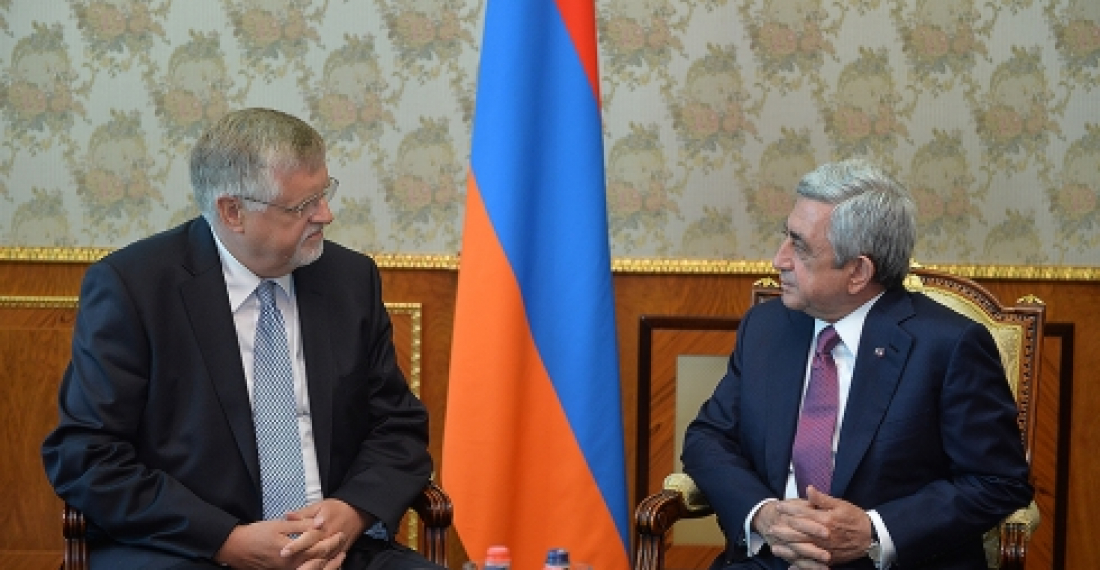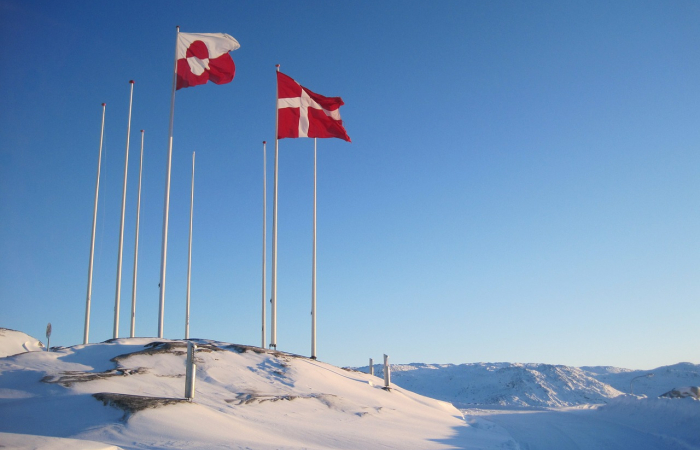The European Union Special Representative for the South Caucasus, Ambassador Herbert Salber, on Wednesday met in Yerevan with the President of Armenia, Serzh Sargsyan.According to the press service of the Armenian president the sides discussed issues of regional security and stability, the current stage of the Karabakh conflict settlement, current issues and future efforts to advance the peace process, as well as issues related to Armenia-EU cooperation.
The same sources said that the Armenian President once again stressed that Armenia highly appreciates the EU's balanced position on the Nagorno-Karabakh conflict, as well as the commitment to create a favorable climate for a comprehensive settlement.
source: commonspace.eu with the Press Service of the President of Armenia.
photo: President Serzh Sargsyan of Armenia on Wednesday, 9 July met in Yerevan with the EU Special Representative for the South Caucasus Ambassadir Herbert Salber.






